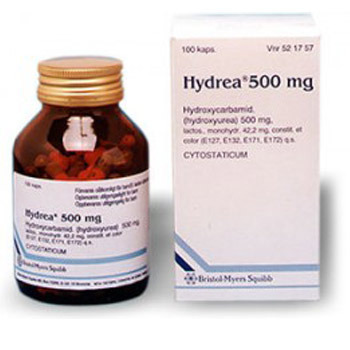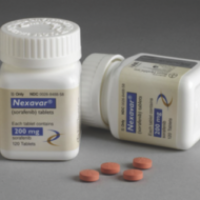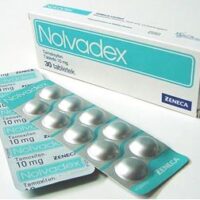Description
Drug Uses
Hydrea is used for treatment of skin cancer, cancer of the ovary, or chronic myelocytic leukemia that is recurrent, has spread, or cannot be helped with surgery. It may also be used with radiation to control skin cancers of the head and neck.
How Taken
Use Hydrea as directed by your doctor. Take Hydrea with or without a meal. You should wash your hands before and after handling Hydrea or the container it comes in. Wear gloves while you are handling Hydrea or its container. Follow your doctor’s instructions for disposing of the gloves after you remove them. It is recommended to drink extra fluids while you are taking Hydrea.
Warnings/Precautions
Before taking Hydrea, tell your doctor or pharmacist if you have any medical conditions, especially if you have allergies to medicines, foods, or other substances, if you are allergic to any ingredient in Hydrea, if you have kidney problems, if you are pregnant, planning to become pregnant or are breast–feeding. Hydrea has been shown to cause harm to the fetus. If you become pregnant, discuss with your doctor the benefits and risks of using Hydrea during pregnancy. Hydrea is excreted in breast milk. Do not breast–feed while taking Hydrea. Some medicines may interact with Hydrea. Therefore tell your doctor of all prescription or nonprescription medicine, herbal preparation, or dietary supplement that you are taking. Do not use Hydrea if you have severe bone marrow depression, low white blood cell counts, low blood platelet levels, or severe anaemia. Before you have any medical or dental treatments, emergency care, or surgery, tell the doctor or dentist that you are using Hydrea. Hydrea may lower your body’s ability to fight infection. Prevent infection by avoiding contact with people with colds or other infections. Notify your doctor of any signs of infection, including fever, sore throat, rash, or chills. Hydrea may reduce the number of clot–forming cells (platelets) in your blood. To prevent bleeding, avoid situations in which bruising or injury may occur. Report any unusual bleeding, bruising, blood in stools, or dark, tarry stools to your doctor. Avoid vaccinations with live virus vaccines (eg, measles, mumps, oral polio) while you are taking Hydrea. Vaccinations may be less effective. Lab tests, including complete blood cell and platelet counts, may be performed to monitor your progress or to check for side effects. Be sure to keep all doctor and lab appointments. Elderly patients may be more sensitive to the effects of Hydrea and might require a lower dose or special monitoring during treatment. It is not recommended to use Hydrea in children. Safety and effectiveness have not been confirmed.
Missed Dose
If you miss a dose take it as soon as you remember. However if it is almost time for the next dose, skip the Missed Dose and continue your regular dosing schedule. Do not take a double dose to make up for a missed one.
Possible Side Effects
Some of the Possible Side Effects are– Constipation, drowsiness, hair loss, and inflammation of the mouth, loss of appetite, nausea, and redness of the face. Contact your doctor if any of these or other side effects occur. If you experience any of the following serious side effects, you should seek medical attention immediately– allergic reactions (rash, hives, difficulty breathing, tightness in the chest, swelling of the mouth, face, lips, or tongue), blood disorders, including low numbers of red or white blood cells, blood in the urine, chills, diarrhea, fever, inflammation of the pancreas, liver toxicity, lower back or abdominal pain, painful urination, persistent cough, secondary leukemia, shortness of breath, skin cancer, skin sores or lesions, sore throat, sores on the mouth or lips, unusual bruising or bleeding, vomiting.
Storage
Store Hydrea at 77 °F (25 °C), excursions permitted to 59 to 86 °F (15 to 30 °C). Store away from heat, moisture, and light. Do not store in the bathroom. Keep Hydrea out of the reach of children.
Overdose
If overdose is suspected seek medical attention immediately. Some of the symptoms of Hydrea overdose are– dark discoloration of the skin, mouth sores, soreness, swelling of palms and soles of the feet followed by scaling of the skin.
More Information
If your symptoms do not improve or if they worsen, contact your doctor. Hydrea should be used only by the patient for whom it has been prescribed. Do not take less or more or take it more often than prescribed by your doctor.
Disclaimer
This is only general information, it does not cover all directions, drug integrations or precautions. You should not rely on it for any purpose, it does not contain any specific instructions for a particular patient. We disclaim all responsibility for the accuracy and reliability of this information. We`re not responsible for any damage.




Reviews
There are no reviews yet.